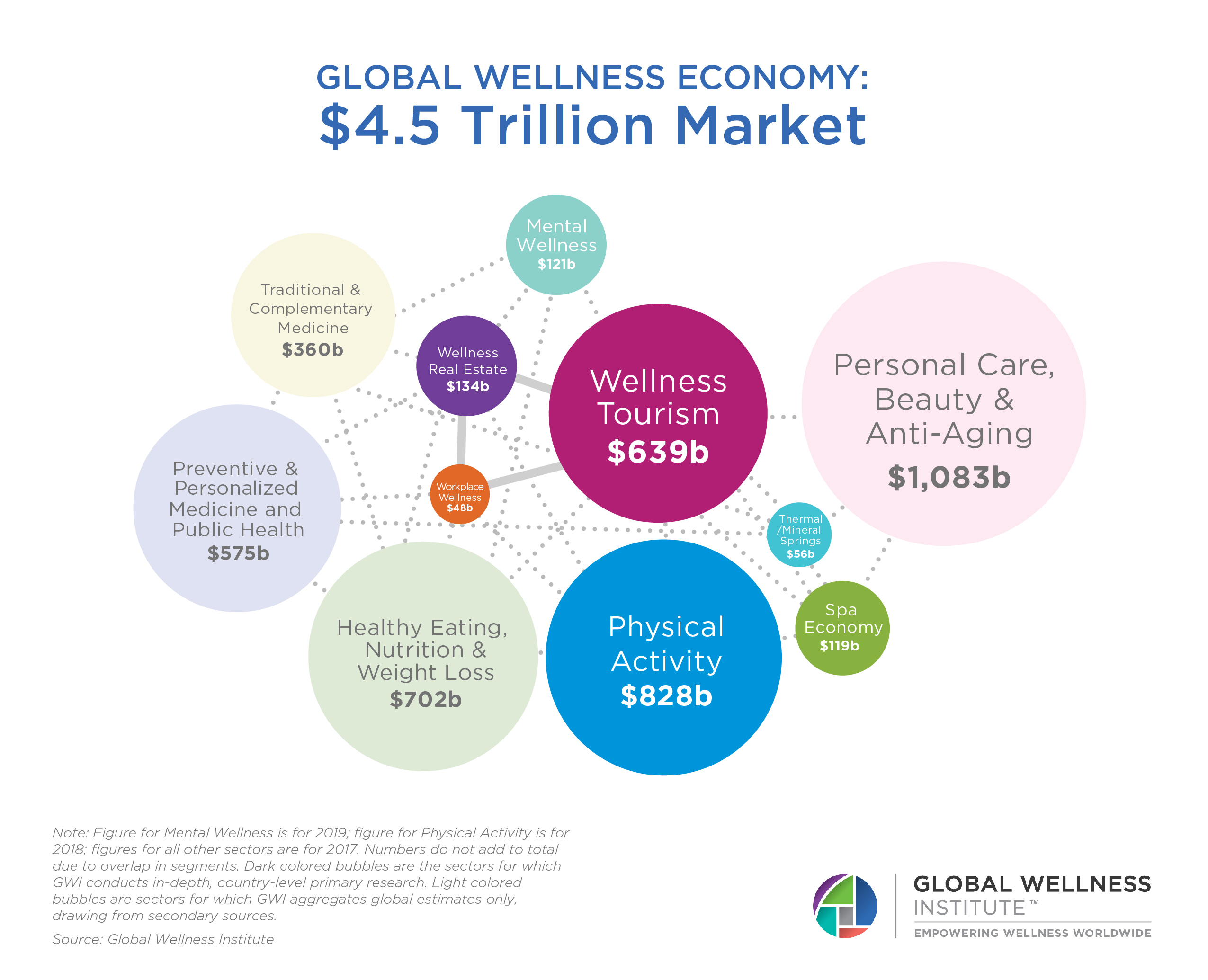The Global Mental Wellness economy is estimated to be over $121 billion in value, according to the first-ever global research in measuring mental wellness as a global industry.
The Global Wellness Institute (GWI) today released its major research report for 2020: “Defining the Mental Wellness Economy.” It’s the first study to define mental wellness as opposed to mental health and to clarify the key concepts and pathways. It’s also the first research to measure mental wellness as a global industry and to identify and benchmark its key sub-segments.
The in-depth (115-page) report finds that the global mental wellness economy is worth $120.8 billion, based on consumer spending in four markets: senses, spaces and sleep ($49.5 billion), brain-boosting nutraceuticals & botanicals ($34.8 billion), self-improvement ($33.6 billion), and meditation and mindfulness ($2.9 billion). Mental wellness becomes a new “industry bubble” in the GWI’s Global Wellness Economy framework, capturing a crucial set of economic activities not previously included in the organization’s wellness economy measurements.
“Stress, loneliness and burnout were exploding pre-pandemic, and a stronger focus on mental wellness has been a cultural mega-shift these last few years: People awakening to the importance of integrative solutions including meditation, sleep and brain health, with businesses rushing in to offer all kinds of solutions. But mental wellness as a concept, and what constitutes it as an industry, has remained incredibly fuzzy,” said GWI senior research fellow, Ophelia Yeung.
“There is an urgency to this research: Study after study shows how the human suffering and economic dislocations caused by the pandemic have ravaged our mental wellbeing. We’re excited to release this study because people are desperate for alternative strategies to cope, and we hope it clarifies how important it is to promote mental wellness–and how businesses, governments, and individuals can all play different roles in addressing a growing crisis” GWI senior research fellow, Katherine Johnston added.
Defining Mental Wellness vs. Mental Health
The GWI defines mental wellness as “an internal resource that helps us think, feel, connect, and function. It is an active process that helps us to build resilience, grow, and flourish.”
The report provides a comprehensive paradigm for understanding the difference between “mental health” and “mental wellness,” impossible to replicate here. The authors propose a “dual continuum model,” in which mental wellness is a dynamic process of moving from languishing, to resilience, to flourishing. Key strategies for mental wellness fall into four pathways: activity and creativity; growth and nourishment; rest and rejuvenation; and connection and meaning.
The Mental Wellness Industry: What’s Included & Why
The research is the first to define the mental wellness industry: “Encompassing businesses whose primary aim is to help us along the mental wellness pathways of growth and nourishment and rest and rejuvenation.” Within those pathways, it identifies four sectors coalescing to form an emerging market: 1) senses, spaces and sleep, 2) brain-boosting nutraceuticals & botanicals, 3) self-improvement and 4) meditation and mindfulness.
The GWI is considered to be the leading global research and educational resource for the global wellness industry and is known for introducing major industry initiatives and regional events that bring together leaders to chart the future.

